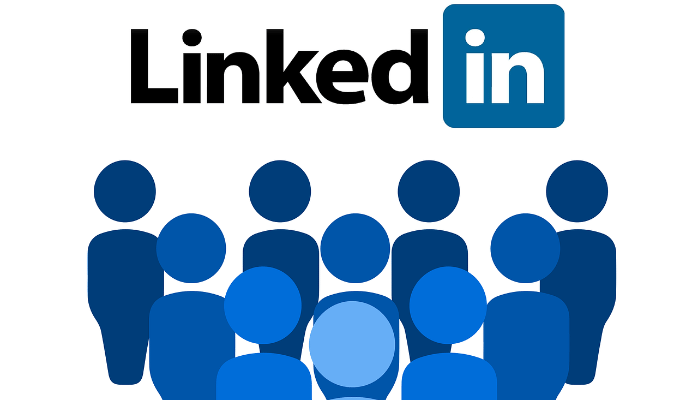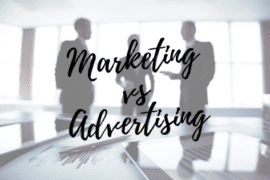In our fascination of how Linkedin has evolved the face of professional networking over the years, we never really think about the disadvantages of Linkedin. But despite any disadvantages that there may be, I’m a big advocate of Linkedin.
I feel that the shortcomings of the platform, are far less than the benefits that Linkedin offers. It’s a great tool for personal branding. But having said that, it’s purely my opinion, and everyone has a right (and experience) to decide whether there are disadvantages to being on Linkedin or not.
Here are 21 Disadvantages of Linkedin that a user might face.
1. Disadvantages of Linkedin in a Professional Capacity
Even though this is not a direct disadvantage of Linkedin, but since Linkedin is a public platform, there can be professional situations when people cannot be officially involved in a professional social networking platform like Linkedin.
For example, appointed judges who might be influenced in their decision-making for a case by being active on Linkedin. Or the officers working for secret services and law enforcement agencies like the CIA and FBI might have a clause that might restrict them from engaging on social networking websites due to conflict of interest.
Similarly, different states (or countries) would have restrictions and ethical standards for different professional fields. Lawyers, for example, might have to adhere to regulations based on of the Bar Association.
2. Linkedin’s User Experience Has Turned People Off in the Past
There have been many complaints by users who use Linkedin regularly, regarding the user experience that it offers. People feel that the user experience is average and with a lot of errors to start with. A platform with errors can lead to frustrated users, and might lead in a low all-time usage.
3. Slow Reaction Time by Linkedin Support
People who have reached out to Linkedin for help and support, also complain that Linkedin is slow to react. This is a tough one. Even though I agree that slow customer service can lead to unhappy users (or customers), but we have to understand that Linkedin offers a free access to their platform for everyone. And having free-access to hundreds of millions of users can lead to an imbalance.
An efficient customer service might come at a cost.
4. Linkedin Owns Your Personal Data & Information
Nothing in the world is free. Linkedin supports itself through advertisements, by allowing advertisers to target its users through the data it collects through users’ profiles. Many people consider this as one of the biggest disadvantages of Linkedin because they are not comfortable with their professional information being sold.
However, to be fair, to ensure privacy measures, platforms similar to Linkedin don’t let advertisers trace specific people through targeting data. The targeting options are only available for advertisers to reach profiles that fall within specific criteria at large.
5. Linkedin Decides on Who Reads Your Post
This is a debatable one. Because there is so much content being shared across all social networks, social media websites like Linkedin, have built algorithms that limit the shared content based on user interests and engagement levels.
This not only allows Linkedin to limit the content in their users’ newsfeeds, but also enables them to generate revenue through Linkedin Ads (Sponsored Posts).
6. Limited Moderation to Manage Scams
Another big disappointment that I have been facing recently is the amount of scam and phishing that is increasing on Linkedin. I consider this as one of the major cons of Linkedin. I understand that it is difficult to manage millions of profiles and to restrict who can create a profile on Linkedin or not, but it is a matter that concerns me.
In recent months, my wife and I have received sponsored In-Mails to set some random distribution offers from shady profiles. Even though we read it, and were instantly thrown-off by the spammy nature of that In-Mail, but it was surprising to see that an Advertising Manager probably would have approved that In-Mail without paying much notice to it.
7. Building a Professional Network is Time-Consuming
Building a presence on Linkedin is time-consuming, and might take someone months (or years) for their profile to become helpful. You cannot play a short game on Linkedin. Many might consider this a disadvantage.
If you want to make the most of Linkedin, you have to play the long-game, and use the platform to build credibility. You cannot just signup and turn your profile into a power-house to drive business results or to start being head-hunted for your dream job.
Everything valuable comes at a price. And in this case, it is the time that you will invest in the platform. The results will be worth it.
8. Becoming a Power-User on Linked Requires a Learning Curve
Like any other platform, if you really want to become a Linkedin power-user, it will require you to set aside some time from your busy schedule and really learn the ins-and-outs of the platform. A lot of test-and-learn approach with go into maximizing your efforts from the platform.
On top of this, the platform keeps evolving, so you would have to continue investing time and energy to stay ahead of the curve. But hey, Linkedin is a powerful business tool, and if it helps you achieve your goals, why won’t you?
9. Another Disadvantage of Linkedin: It Exposes Your Identity
From a privacy perspective, having your life (personal or professional) out there for everyone to see is not the safest thing one can do. And that’s one of the drawbacks of Linkedin that people should be careful about. You may have a very closed profile, where you only add and accept people you know. But this won’t help you to make the most out of this platform.
Maximizing the outcomes from using Linkedin requires a person to be open-minded, be inviting and be out there, so people can connect with you for conversations in your professional space.
Imagine meeting new people who you would not have otherwise met? Those people might be your new co-workers, boss or your next client.
Also, if you have been commenting a lot of negative responses across the internet, or have behaved inappropriately online, chances are that Linkedin for Business search results will display those contributions due to its high domain authority in search results. Protect your reputation, and don’t get involved in unnecessary conversations online.
10. Disadvantages of Linkedin for Job Seekers
A lot of job seekers complain about not getting any responses from the applications they send through Linkedin. It is partly true. But the part of the problem is usually not with Linkedin, but with the fundamental issue of how recruiting works. For every posted job, there are hundreds of applications, if not thousands. And recruiters, similar to how they scan your resume outside of Linkedin, will take a quick glance through a job-seekers profile.
If the job-seeker’s profile is average, filled with too much information, is scattered, or doesn’t standout – he or she should not expect a response.
Building a great profile takes a lot of time. It also takes an intensive trial and error approach. Try to put yourself in the recruiters’ shoes, and understand the process. When they are looking for candidates, they look for keywords relating to the job. If you happen to have those skills, you need to be laser focused on your profile building approach.
Also, don’t forget to invest in a professional headshot.
An additional effort and time that job-seekers can start investing in, is networking with professionals from the companies they want to work for. This usually helps sweeten the deal and can get your resume through a recommendation of the company’s employee. Plus, if the candidate has a good profile, the employee will be more than happy to recommend them for a job for some brownie points in their company for recommending them (and even some cash incentive, if their company offers that).
Unfortunately, most people don’t have the perseverance to invest so much time in networking on Linkedin. Hence, they consider their unsuccessful attempts a disadvantage of Linkedin.
11. Identity Theft and Risk of Breach of User Data & Privacy
We’ve seen many data-heavy companies getting hacked for user-data. That’s one of the major risks that users put themselves into when signing up for social network platforms like Linkedin. To fully embrace Linkedin, the user has to disclose a lot of sensitive personal and professional information such as date of birth, employment history, contact information, email address, etc.
If Linkedin servers’ security was ever to get compromised, the users will be at a risk of identity theft.
12. Addiction to Linkedin
Social networks are addictive. And the user might start spending too much time on Linkedin, and de-prioritize other personal and professional deliverables.
13. More Advanced Linkedin Features Cost Money
If a user wants premium features that Linkedin offers, they would have to pay for a membership. Premium features on Linkedin allow users more enhanced search features, more detailed insights into the strength of the profiles and visitors, and In-Mails to contact other Linkedin members not part of a user’s network.
Even though we’d like to enjoy these added premium benefits for free, but that’s one of the ways Linkedin makes money.
14. Professionals Who Are Not Active On Linked Might Be OverLooked
So this I feel is an interesting one because not everyone will have a great Linkedin profile, however, they might be a great candidate for a role that just opened up in your company. And in such a situation, is it fair that your professional contacts that are not actively engaged on Linked, get overlooked and not be given a chance?
15. Public Vindictive Behavior by a Co-Worker
Social Media is not clean from people who can turn their personal ill-feelings towards someone, into a public hate mongering. There might be an ex-boss or colleague, who makes it a mission to destroy your reputation on Linkedin. In such circumstances, your Linkedin profile (apart from other social networks) can become the target of harmful accusations.
The rewards significantly outweigh the risks or disadvantages.
16. Limited Engagement from People You Want to Connect With
Even though Linkedin boasts over 500 million users on its platform, not all of them are active. This may lead to frustration for some users, where they are heavily reliant on connecting or engaging with someone who is not very active on the platform. This leads to no visibility on when someone will possible read or engage with your posts (unlike emails or other social networks)
The good thing is, that Linked also allows people to share their email address, which can be a workaround to reach people who are inactive.
17. Active Profiles on Linkedin Are Up-to-date
It is ideal to keep ones profile up-to-date on Linkedin because it represents a user’s professional image in the social space. A profile that is not current, may damage, a professional’s reputation and make him/her look unprofessional and sloppy. Keeping the profile up-to-date in turn, required more time and energy.
18. Spam Messages on Linkedin by Jon Seekers and Business Trying to Sell
Since many users are trying to develop business or looking for jobs, almost everyone receives a lot of spam messages from Linkedin users that are not very Linkedin savvy. There are tons of people out there, who usually add random contacts on Linkedin and send them a mass copy-pasted message.
I once received a spam from a person working in my industry. He kept sending me spam and follow-ups for a week. And after a week, he sent me a message to throw me off on a guilt trip and deleted me from his contacts list. Good riddance.
19. Not Many Users Engage on Linkedin
Engagement on Linkedin is limited when you compare it to other social networks like Facebook and Twitter. Not many people like comment or share posts. If you look at the analytics of something you shared on Linkedin, you will notice that even though there have been views of your content, most people prefer to stay silent observes.
The probable reason for this is that people fear to associate themselves with strong opinions and side with content pieces in a professional environment.
20. No way to Verify Endorsements on Linkedin
Professional endorse each other on Linkedin for different skills. More often than not it is a quid-pro-quo. Because of these reasons, we can see what skills someone may be good at, but cannot verify how good they are (are are they any good at all).
Make sure to take caution when someone claims a certain skill-set.
21. Premium Accounts on Linkedin are Costly
A business premium account on Linkedin can set you back at least $600 (exclusive of taxes) annually. And that too if you pay the annual amount upfront. Paying monthly would be about $60 (exclusive of taxes) – but that’s an additional $120 per year (exclusive of taxes).
Conclusion: Disadvantages of Linkedin
The benefits of Linkedin definitely outweigh its disadvantages. However, we recommend you to use Linkedin with caution, and responsibly. If you truly want to drive value through this platform, make sure to invest time and energy to really get the hang of it.
Contribute content, comment on posts, engage with power-users to gain more visibility, write blog-posts and keep your profile up-to-date.
Image Source: Linkedin






